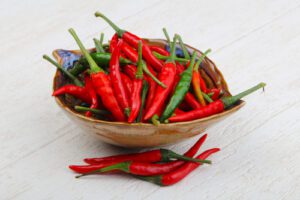 Amid growing demand for organic label claims, product developers seek out solutions to a limited supply of the world’s most flavorful ingredients.
Amid growing demand for organic label claims, product developers seek out solutions to a limited supply of the world’s most flavorful ingredients.
Sales of organic foods continue to grow in both retail and food service, despite continued struggle for supply to meet demand. Consumers’ desire for organic, along with their craving for convenience and flavor adventure, has retailers seeking organic offerings that go beyond the whole foods merchandised around the perimeter of the store. In response, culinologists are developing prepared foods — from condiments to heat-and-eat meals — with organic ingredients.
In 2013, Euromonitor International, Chicago predicted that the US organic packaged foods industry would grow by 19% from 2012 to 2017. Current trends suggest the figure will likely be exceeded and continue to grow at a rapid rate.
More than 80% of meals are sourced from home, according to NPD Group, Port Washington, NY. Food manufacturers may benefit by capitalizing on consumers’ desires for fresh, authentic foods, including organic. The variety of organic packaged foods is expected to grow as more ingredients receive organic certification from the US Department of Agriculture (USDA). The issue is making the packaged foods flavorful, as organic herbs and spices may be challenging to source.
A challenging opportunity
The USDA requires certified organic products to have at least 95% organic ingredients in order to have the official organic seal on the package. There is an approved National List of allowed non-organically produced agricultural-based ingredients for use in organic certified foods. Herbs and spices are not on the list, which means foods certified organic may only contain organically certified herbs and spices.
“There are several factors that make sourcing ingredients challenging. First and foremost, there simply might not be a crop available in the quantity that brands demand,” said Ilana Orlofsky, marketing coordinator, Imbibe, Niles, Ill. “In addition, crops vary season to season and year to year. Taste profiles may differ, which makes it harder to create a standardized, uniform product.”
Read the full story on Culinology.



